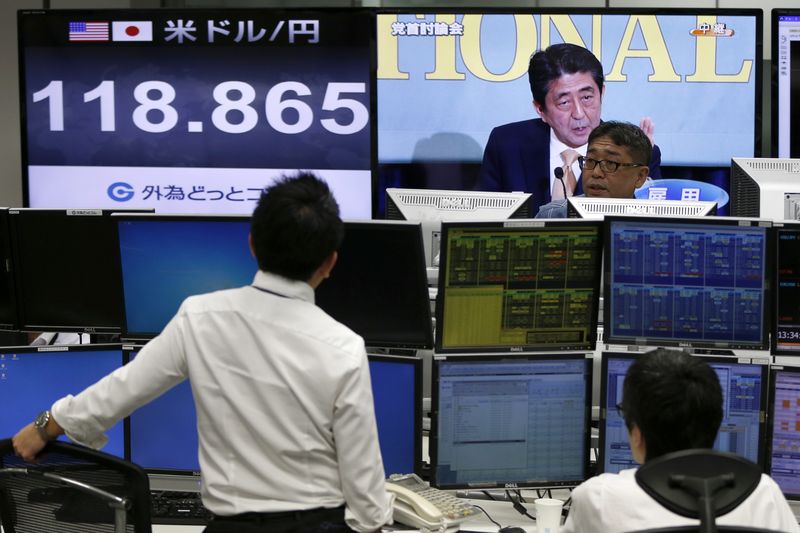Investing.com-- Japan’s benchmark Nikkei 225 index traded within a whisker of a record high on Friday, extending a raft of impressive gains and rising past weak economic data as markets bet that the Bank of Japan will remain ultra-dovish for longer.
The technology sector was the biggest boost to the Nikkei, with local chipmaking and chip-adjacent stocks clocking strong gains on increased hype over artificial intelligence development.
The Nikkei 225 traded up 1.8% at 38,830.0 points by 19:58 ET (00:58 GMT), and was just below a lifetime high of 38,915 points, which was hit in 1989, before the unwinding of a massive speculative bubble and the onset of Japan’s “lost decade.”
The broader TOPIX index, which has relatively less tech weightage than the Nikkei, rose 1.2% and was at a 34-year high.
Analysts at Citi said that the rally in Japanese markets still had legs, and projected that the Nikkei will reach the 45,000 level in 2024- an 18% upside from current levels. The TOPIX is expected to rise to 3,100 in 2024- a nearly 20% gain from current levels.
Citi said that continued strength in U.S. equity markets, easy monetary conditions and robust foreign inflows were the three main catalysts of more gains in Japanese markets.
Recent strength in Japanese equities came even as data on Thursday showed that Japan unexpectedly slipped into a technical recession in the fourth quarter, while also relinquishing its spot as the world’s third-largest economy to Germany.
But the weak data fueled increased bets that the Bank of Japan will have to delay its plans to begin hiking interest rates from ultra-low levels this year. While the BOJ has signaled that it will raise rates in 2024, it has given scant cues on the timing of the move, while top-ranking policymakers also signaled that the rate hikes will be gradual.
An ultra-dovish BOJ was a key point of support for Japanese markets over the past two years, as foreign investors piled into local markets to take advantage of ultra-loose monetary conditions and a severely battered yen.
The BOJ maintained its dovish course even as most of its major global peers began raising interest rates to curb a post-COVID boom in inflation.
Recent data showed that Japanese inflation slowed towards the end of 2023, but still remained above the BOJ’s 2% annual target. The bank has signaled that it will only begin raising rates when inflation is comfortably within its target range, and when wage growth has improved.
